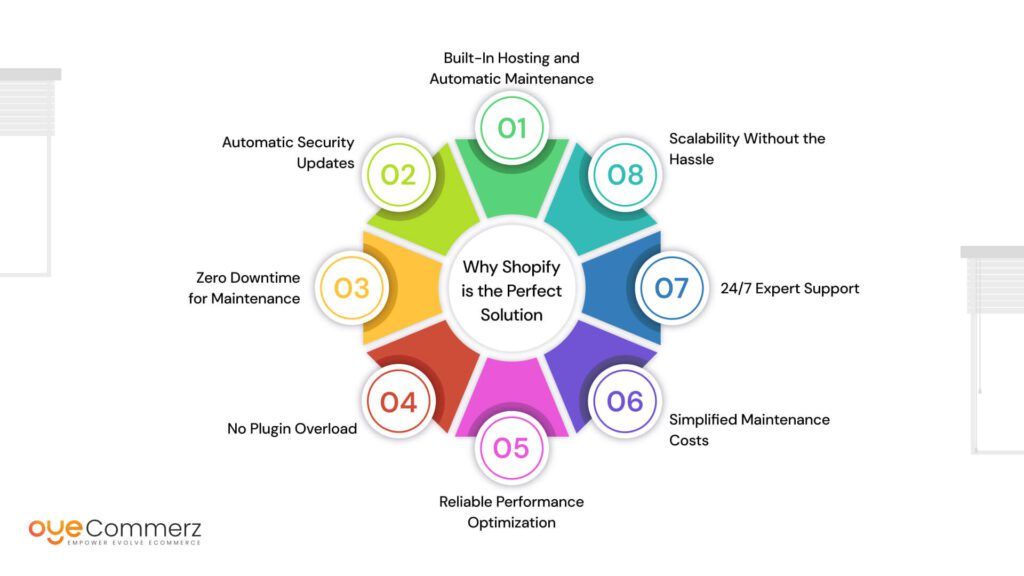In the dynamic landscape of eCommerce, picking the right platform is crucial for your company’s growth. If you’re presently using WP and thinking about a migration to Shopify, you’re not the only one. Countless businesses are switching to leverage Shopify’s robust features, user-friendliness, and expandability. This guide will guide you on the steps of migrating from WP to this platform effortlessly, making sure that you unlock your eCommerce potential.
Why Switch from WordPress to Shopify?
Ahead of starting the migration process, it’s essential to realize why this transition can be advantageous for your eCommerce business:
User-Friendly Interface: Shopify features an straightforward interface that simplifies store handling, enabling for non-technical users.
Growth Potential: As your company develops, Shopify can accommodate increased visitors and transactions without compromising performance.
Integrated Features: Shopify provides pre-installed resources for search engine optimization, analytics, payment handling, and more, minimizing the requirement for several plugins.
Enhanced Security: With Shopify, you benefit from advanced security features that protect critical customer information.
Steps for a Seamless Migration
Migrating your eCommerce site from WordPress to Shopify includes several actions.
Here’s steps to achieve a smooth transition:
Prepare Your Migration Plan
Kick-off by drafting your migration plan. Pinpoint which elements of your present site you want to move, such as:
Item details
Customer information
Transaction records
Blog content
Choose the Best Migration Option
Depending on your preferences, opt for a migration package that aligns with your business. Migration experts offers multiple options:
Entry-Level Plan: Ideal for small stores with minimal products.
Standard Migration Package: Appropriate for medium-sized businesses with moderate requirements.
Advanced Plan: Best for big stores needing broad customization.
Secure Your Data
Prior to beginning the migration, make sure that you have a full backup of your WP site. This action is critical in situations where anything Shopify for eCommerce growth goes off track during the transfer.
Retrieve Your Information from WordPress
Utilize plugins or alternative solutions to export critical information from your WP site:
Products
Clients
Sales records
Blog posts
Import Content into Shopify
After you have your content extracted, use Shopify’s built-in features or specialized apps to upload your information into your updated store. Verify that all information is correctly formatted and arranged.
Personalize Your Shopify Platform
After importing information, tailor your Shopify store’s layout to match with your style. Think about working with a specialist if you need advanced customization.
Configure TransactionOptions and Delivery Settings
Arrange payment gateways and logistics options in Shopify to facilitate a smooth transaction experience for customers.
Apply Search Engine Optimization Best Practices
To preserve your SEO performance during the migration:
Implement 301 URL mappings from existing URLs to migrated ones.
Revise meta tags.
Optimize images and Shopify store management tools content for SEO.
Test Your New Shop
Before launching, thoroughly test your new platform. Look out for any errors, transaction errors, or untransferred content.
Publish Your Site
When everything is in place, it’s time to launch! Announce the transition to your customers and encourage them to discover the new features of your Shopify store.
Post-Migration Support
Following releasing your updated store, continued support is essential. Consider engaging service providers who can guide with:
Site maintenance
Customer engagement
Enhancing features
Conclusion
Migrating from WP to Shopify can be a transformative decision for your digital business. By adopting this guide and utilizing experts like those offered by dedicated providers, you can ensure a smooth transition that improves your digital storefront. Embrace the change and realize the potential of Shopify today!
